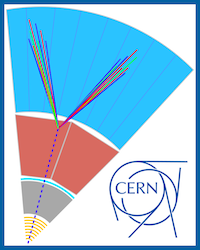
Following the successes of the LHC Long-Lived Particle (LLP) Workshops in April and October of 2017 and May and October of 2018 -- and continuing the robust and rich tradition defined by prior workshops such as “LHC Searches for Long-Lived BSM Particles: Theory Meets Experiment", at U. Mass, Amherst, in November of 2015; “Experimental Challenges for the LHC Run II", at the Kavli Institute for Theoretical Physics in May of 2016; and the “LHC Long-Lived Particles Mini-Workshop" at CERN in May of 2016 -- the LHC LLP Community, composed of members of the CMS, LHCb, and ATLAS collaborations as well as theorists, phenomenologists and those interested in LLP searches with dedicated LHC detectors such as milliQan, MoEDAL, MATHUSLA, FASER, Codex-b, etc., convenes again to assess the state of searches for long-lived particles beyond the Standard Model at the LHC, brainstorm about new ideas for LLP searches, and focus on the future of LLP searches in HEP, both at the LHC and for future detectors and projects.
The format will likely be similar to that of our previous workshops, i.e., a working-workshop, where we focus on discussion and collaboration, with any talks functioning to set the stage for that collaboration.
The agenda will coalesce in the months leading up to the workshop, but in addition to the usual updates about the status of searches at the main LHC detectors and dedicated detectors, both operating and planned, we will likely have breakout working sessions devoted to -- but not limited to -- the following:
- What's next for LLP searches at the LHC?
- What didn't we get to cover in the first white paper?
- What triggers are missing for ATLAS, CMS, and LHCb for Run 3?
- What about future detectors and projects? How well do we understand the full and complete capabilities of the upgrade plans for the main LHC detectors to have sensitivity to the discovery of LLPs versus planned dedicated detectors?
- What are we still overlooking with respect to LLPs at the HL-LHC?
- What's the hottest-and-latest about dedicated detectors such as milliQan, MOeDAL, MATHUSLA, CODEX-b, FASER, etc.?
- What about LLPs at next-generation projects like FCC, CEPC, ILC, CLIC?
- How can we fully leverage machine learning tools to facilitate the discovery of LLPs?
And yes, of course there will be at least one lightning round! Please contact the organizers with your proposal or idea.
Note that while we hope to see you in person at CERN, remote participation will indeed be available via Vidyo.
More information soon!
